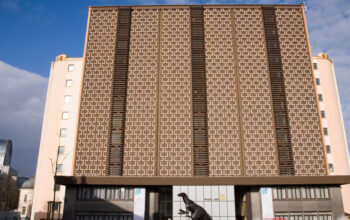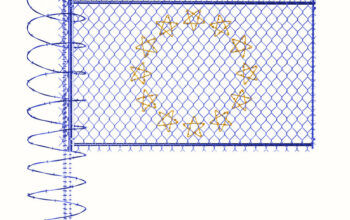
When a Russian missile strike hit a maternity hospital in the Ukrainian port city of Mariupol early last month, Elena Karas, a nurse, was on the third floor taking care of 13 premature babies, two of whom had been abandoned.
With Mariupol’s electricity, water and gas largely cut off, the hospital was cold, having only a generator in the delivery room. Ms. Karas was using plastic bottles filled with hot water to keep the babies warm, and was watching a mother changing a diaper when the missile hit, throwing the nurse to the ground and wounding her forehead with a shard of glass.
“Everything turned white, as if flour covered all the surfaces,” Ms. Karas, 57, said in a telephone interview from northern Italy, to which she has fled. “Everything was destroyed in one second.”
The brutality of Russia’s invasion of Ukraine has now become apparent, with evidence of atrocities against civilians mounting. But the attack at City Hospital No. 3 in Mariupol was among the first shocking signs that Ukraine was facing a merciless war. A photograph of a pregnant woman who was killed in the strike became an iconic image of the war’s toll.
“I didn’t ever think they could bomb our hospital.” Ms. Karas said. “Not a hospital. You would think it’s a safe place.”
Even before the attack, the dire conditions in the hospital had led to the death of a premature baby who could not be properly given oxygen or kept sufficiently warm. After the strike, Russia’s foreign minister, Sergey V. Lavrov, told reporters that the hospital had been seized days before by “ultraradical” Ukrainian forces and emptied of the doctors and patients.
Ms. Karas said she was one of six medical workers in her ward who had continued to work despite the dangers of commuting in the besieged city, where officials say that thousands of people have been killed and that 90 percent of the city’s infrastructure is destroyed.
Each day, she walked along a street where dead bodies lay, she said, amid the sounds of artillery and bombing.
“I was scared, really scared,” she said, “But I had to go — that was my job. If I didn’t go, who would take care of the children?”
Working made her feel good, she said, and she felt safer in the hospital. She also felt more useful than she would have staying home. “What could I do there?” she said. “Sit, trembling in fear?”
After the strike, the patients and workers, some of whom were wounded, were taken to a military hospital, Ms. Karas said. She went home, where for 10 days, she said, she and her family melted snow to drink water and struggled to light a fire with damp wood as the destruction unfolded around them.
On March 18, she and her daughter-in-law found space in two cars of people leaving Mariupol.
“Either you stay in the city or you survive,” she said.
Ms. Karas and her grandchildren made it to Italy on April 1, and her husband fled Mariupol on March 31, but their son and daughter stayed to fight. Ms. Karas has taken a temporary job helping an older woman near the northern city of Verona.
“I need to do something,” she said. “I am going crazy without work at home.”
Ms. Karas left a home with broken windows and no door, and she said she didn’t know whether her building was still standing.
“In my head, it does not compute that there’s nowhere to go back to, to go back to a desert,” she said. “Every person needs a place to return to.”
Valeriya Safronova contributed reporting.



